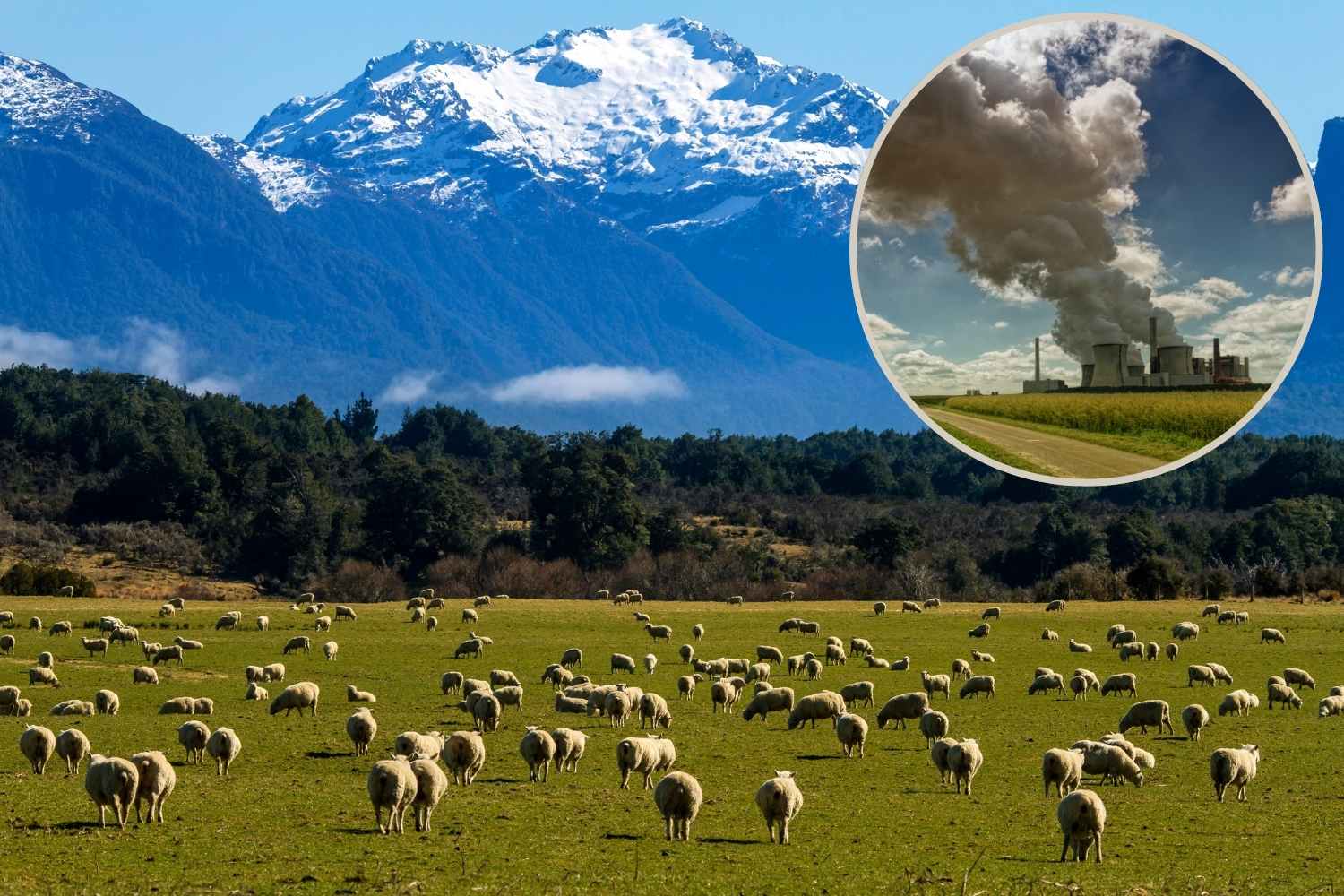The New Zealand coalition government has announced a reduction in biogenic methane emission reduction targets, lowering the 2050 target from 24-47% to 14-24%. The move has sparked reactions from environmentalists and scientists, who denounce "total climate denial" in a country where agriculture produces half of national emissions

Table of contents
A strong wave of controversy has swept over the New Zealand government following the announcement of a significant reduction in biogenic methane emission reduction targets, a greenhouse gas with substantial global warming potential. The decision, made by the right-wing coalition government, has found support from farmers but has sparked a chorus of harsh criticism from environmentalists, scientists and opposition members, who call it a “weak” and “unambitious” choice.
Cutting the targets
On Sunday, the government outlined new plans for methane reduction: the emission reduction target by 2050 (compared to 2017 levels) has been narrowed to a range between 14 and 24%. The move represents a clear step backward from the previous target, which called for a much more significant cut, between 24 and 47%.
Biogenic methane is closely linked to the agricultural sector, particularly livestock farming, given the presence in the country of approximately five million cows and 23 million sheep. Agriculture, according to government data, is responsible for nearly half of New Zealand’s total greenhouse gas emissions.
Opposing reactions: farmers and environmentalists
The policy shift has been welcomed with relief by farmer associations, which had fiercely contested the previous target. Wayne Langford, president of the Federated Farmers of New Zealand (an agricultural lobby), called the old targets “absolute madness” and expressed satisfaction, stating that farming families, who had been under heavy pressure, seem to have finally found some breathing room.
Environmentalists take a completely different view. Greenpeace’s New Zealand office has accused the government of a policy that “amounts to total climate change denial“. Amanda Larsson, a climate activist with the group, directly criticized Prime Minister Christopher Luxon, arguing that he is “choosing… corporate profits over our children’s future”.
Scientific criticism and reputational damage
The scientific community has also expressed strong concern. Ralph Sims, a climate mitigation expert at Massey University, highlighted a critical issue in the government’s plans: the government has confirmed it will not impose any tax on agricultural methane emissions for fear of business closures and will invest 400 million New Zealand dollars (approximately $230 million USD) in methane reduction technology. Sims, however, warned that there is “no guarantee” that scientific research can provide concrete, short-term solutions for biogenic methane. Climate Change Minister Simon Watts nevertheless stated that total agricultural emissions could decrease by up to 14% over the next decade, provided that 30% of farmers adopt technologies expected to be available before 2030.
Scientists and advocacy groups fear this decision could damage New Zealand’s international reputation. Climate Action, an influential advocacy group, stated that reducing the target risks tarnishing the country’s image. Jocelyn Turnbull, a prominent scientist at the government institute Earth Sciences New Zealand, joined the chorus, stating that the policy change could damage New Zealand’s “clean and green” image, whose climate situation is already critical, with oceans that, according to a report, are warming 34% faster than the global average.
Despite the criticism, Minister Watts sought to reassure, stating that the government “remains committed to our national and international climate change commitments, including the goal of net zero emissions by 2050”. He also added that agriculture “will continue to make an important and fair contribution to achieving this reduction”. The government has also established that it will conduct a legislative review of biogenic methane targets in 2040, while confirming the absence of imminent taxes on agricultural emissions.
